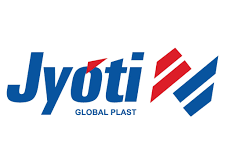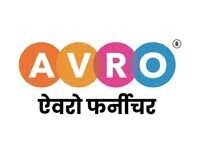India’s education landscape is undergoing a transformation as quality tech training breaks free from metropolitan monopolies. The India Skills Report 2025 reveals that while 71.5% of India’s 1.5 million annual engineering graduates are employable, talent concentration remains heavily skewed toward cities like Pune, Bengaluru, and Mumbai. This geographical disparity leaves tier-2 and tier-3 cities home to the majority of India’s youth, struggling for access to quality, industry-aligned education. A new wave of edtech startups is changing this narrative by democratizing learning and proving that talent isn’t confined to metro cities, it just needs the right platform to emerge.
1. Masai School
Masai School stands at the forefront of this revolution, pioneering an outcome-driven education model that has successfully placed over 7,000 students from smaller cities across India. Founded in 2019 and based in Bengaluru, it has achieved a 94% placement rate, partnering with over 2,500 hiring companies including Swiggy, Paytm, Dream11, Capgemini, and IBM.
What truly distinguishes Masai is its strategic collaborations with premier institutions including six IITs, five IIMs, and multiple other institutes of national importance. These partnerships enable the “IIT for All” initiative, delivering IIT-quality education through weekend courses. Masai’s offerings span full-stack web development, backend development, data analytics, mobile development, and software testing, all integrated with generative AI. The flagship Misogi initiative focuses on AI engineering education. As a Series B-funded startup partnering with the National Skill Development Corporation, this edtech platform is creating scalable frameworks for skill-based tech learning, particularly targeting tier-2 and tier-3 cities where access to quality, outcome-driven education remains limited.
1. Physics Wallah
Originally launched as a YouTube channel by educator Alakh Pandey, Physics Wallah has evolved into India’s most affordable and accessible edtech platform with deep penetration beyond metros. While it began with JEE and NEET preparation, the platform has expanded into tech upskilling through PW Skills, offering courses in data science, web development, and programming specifically designed for tier-2 and tier-3 learners.
The game-changer is affordability—courses start at ₹3,000-4,000 annually compared to ₹1-2 lakh charged by traditional coaching institutes. This pricing strategy has made quality education accessible to millions of students from smaller towns who previously had no viable options. The platform is available in multiple regional languages, effectively breaking the English barrier that often excludes rural and semi-urban students from quality tech education.
2. Coding Ninjas
While initially metro-focused, Coding Ninjas has significantly expanded its reach to tier-2 and tier-3 cities through comprehensive online live classes and structured learning paths. The platform specializes in competitive programming, data structures, and interview preparation—critical skills for landing jobs at top tech companies.
What makes Coding Ninjas particularly effective for smaller city students is its dedicated teaching assistant support and doubt-solving sessions, ensuring students don’t feel isolated despite learning remotely. The platform offers targeted scholarship programs for students from tier-2/3 colleges, recognizing that academic scores don’t always reflect potential. Students from cities like Jaipur, Indore, Lucknow, and Bhopal have successfully cracked interviews at Google, Amazon, and Microsoft after training here.
3. Verzeo
Verzeo addresses a critical gap by partnering directly with tier-2 and tier-3 engineering colleges where campus placement rates are typically low. The Bangalore-based startup offers industry-relevant training in AI, machine learning, cloud computing, and other emerging technologies through live instructor-led sessions.
The platform’s unique approach involves embedding its curriculum within college structures, allowing students from less prestigious institutions to gain industry-ready skills while completing their degrees. With partnerships across over 200 colleges, many in smaller cities, Verzeo provides project-based learning, industry mentorship, and internship opportunities. Courses are affordably priced at ₹10,000-15,000, making them accessible to middle-class families seeking better career outcomes for their children.
4. Skill-Lync
Chennai-based Skill-Lync fills a crucial niche often ignored by software-focused edtech platforms—core engineering skills for mechanical, civil, and electrical engineering graduates. The platform particularly targets students from tier-2/3 colleges across Tamil Nadu, Karnataka, Andhra Pradesh, and Telangana, states with numerous engineering institutions in smaller cities.
By providing hands-on training in CAD software, simulation tools, and industry-standard applications, Skill-Lync helps engineers from smaller cities compete for core engineering roles that their college curricula failed to prepare them for. The platform’s courses include live projects addressing real engineering problems, giving students practical experience that significantly improves their employability.
The Path Forward
These startups represent more than just alternative education models—they’re agents of economic democratization. By leveraging technology to overcome geographical barriers, offering affordable pricing structures, and maintaining industry-aligned curricula, they’re unlocking talent pools that traditional education systems have systematically excluded.
The transformation is evident in the numbers and stories. When a delivery executive from Kanpur can become a software developer, when a student from Navsari can land a job at a tech company, when someone from Dehradun can compete with IIT graduates—it signals a fundamental shift in who gets access to opportunity in India.
The key to this revolution lies in the alignment of incentives. Pay-after-placement models, transparent placement tracking, and outcome-focused learning ensure that these platforms succeed only when their students succeed. This accountability is reshaping education from a credential-dispensing system into a genuine pathway for economic mobility.
As India positions itself as a global tech talent hub, the future of this ecosystem won’t be shaped solely by graduates from premier institutions in metros. It will be built by determined learners from Tier-2 and Tier-3 cities who now have access to the same quality training, the same job opportunities, and the same chance to succeed. These five platforms are proving that talent is equally distributed—opportunity just needed to catch up.
 Newspatrolling.com News cum Content Syndication Portal Online
Newspatrolling.com News cum Content Syndication Portal Online







